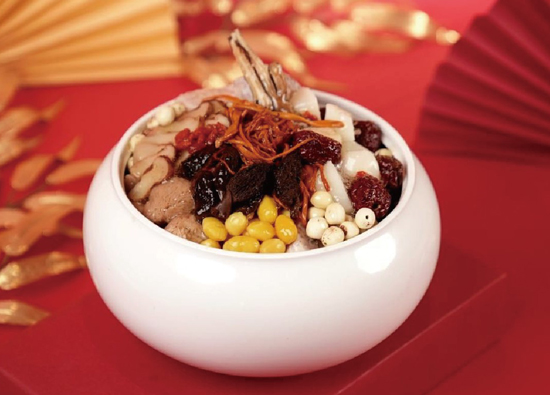01.2025 Life Guide
Six common emergency diseases during the Spring Festival holiday
Dr. Zhang Zhirong, Emergency Medicine Department, Far Eastern Memorial Hospital /


 The Lunar New Year holiday is approaching, and many people are traveling north and south during the holiday. Coupled with the abundance of dishes and changes in daily routines, it is easy to cause various injuries and illnesses. In addition, outpatient clinics are usually closed at this time, so the number of emergency visits and waiting time are more than 2-3 times higher than usual. According to recent health insurance data, common reasons for seeking medical attention during the Chinese New Year include acute gastroenteritis, upper respiratory tract infections, various injuries, and poor control of chronic diseases leading to acute attacks. This issue of 'Health Column' provides an introduction and advice on relevant symptoms, reminding everyone to pay attention to health in a joyful atmosphere in order to enjoy the holiday happily.
The Lunar New Year holiday is approaching, and many people are traveling north and south during the holiday. Coupled with the abundance of dishes and changes in daily routines, it is easy to cause various injuries and illnesses. In addition, outpatient clinics are usually closed at this time, so the number of emergency visits and waiting time are more than 2-3 times higher than usual. According to recent health insurance data, common reasons for seeking medical attention during the Chinese New Year include acute gastroenteritis, upper respiratory tract infections, various injuries, and poor control of chronic diseases leading to acute attacks. This issue of 'Health Column' provides an introduction and advice on relevant symptoms, reminding everyone to pay attention to health in a joyful atmosphere in order to enjoy the holiday happily.Rotavirus or Norovirus induced gastroenteritis
Autumn and winter are the peak seasons for viral gastroenteritis such as rotavirus or norovirus. During the Spring Festival, there is a rich and greasy variety of food, as well as factors such as overeating, repeated cooking, and improper storage of food (materials), which can easily lead to gastrointestinal symptoms such as abdominal distension, burning sensation in the esophagus, stomach pain, vomiting, and diarrhea.
Remind everyone that frequent and correct hand washing, especially before eating, cleaning, toileting, and changing diapers, can help prevent the spread of bacteria. For food materials and seafood, good preservation and separate cooking are also very important. With appropriate and balanced diet, avoid overeating difficult to digest foods such as rice cakes, rice dumpling, high fat, etc., combined with proper exercise and supplement of vegetables and fruits, it can reduce the chances of indigestion, gastroesophageal reflux, etc. If the symptoms are mild, consider taking probiotics and allowing the gastrointestinal tract to rest for a period of time. After the symptoms subside, gradually return to a normal diet.
Fish bones stuck in the throat
It is a traditional Chinese custom to have surplus every year, so fish is usually included in the New Year's Eve dinner. However, this has also led to an increase in the number of patients with fish bones stuck in their throats during the Spring Festival, especially the elderly, children, and those with swallowing dysfunction (such as stroke patients), who are more likely to face the risk of choking or choking on food. In severe cases, it may lead to life-threatening situations, so special attention should be paid to the eating habits of specific ethnic groups.
When enjoying fish meat, be sure to chew it carefully and swallow it slowly, while avoiding swallowing it with other dishes to reduce accidental ingestion. If unfortunately a fish bone gets stuck in the throat, you can try coughing gently, but do not forcefully swallow to avoid puncturing the esophagus. Also, do not excessively induce vomiting to avoid esophageal damage or aspiration pneumonia.
Symptoms of acute upper respiratory tract infection
Winter itself is a peak season for influenza and other respiratory virus infections. In recent years, due to the impact of the COVID-19 pandemic, most people have been wearing masks and reducing gatherings, resulting in a significant decrease in diseases transmitted through droplets and air compared to previous years. However, it is no longer mandatory to wear masks, so special attention should be paid to respiratory hygiene and good cough etiquette should be followed. If you feel unwell, you should try to minimize entering and leaving public places. Even if you have to go out or attend gatherings, you should wear a mask to prevent the virus from spreading to others.
Fever in children
Fever in children is a common condition in emergency departments. In the early stages of the disease, parents can assist children in reducing the fever through physical methods such as replenishing water or wiping with warm water, while observing their mental state, activity, and appetite to determine whether medical treatment is needed. Usually observe for 2-3 days. If the fever gradually subsides and vitality and appetite gradually recover, there is no need to worry excessively. However, if a child has a fever exceeding 40 degrees Celsius, persists for more than 3 days, experiences drowsiness, shortness of breath, inability to eat, or is under three months old, it is recommended to immediately seek further evaluation at the hospital. In addition, it is also possible to prepare some fever reducing potions and suppositories at home in advance for emergencies.
Accidents such as burns, injuries, etc
During the Spring Festival, it is easy to cut or burn during the cooking process due to negligence; As outdoor activities increase and family and friends gather to drink, it is inevitable that accidents such as falls and fights will occur. In addition, setting off fireworks and firecrackers often causes burns and even fire accidents.
Therefore, drinking should be done within one's means, and activities should be minimized as much as possible after drinking, while adhering to the principle of not driving; When setting off firecrackers, attention should be paid to the safety of the operation and release environment, avoiding placing the firecrackers too close to the eyes or ears to prevent damage to vision or hearing. If unfortunately burned, immediate measures such as flushing, removing, soaking, covering, and sending should be taken, and medical attention should be sought as soon as possible to reduce sustained thermal injury. When a cut or tear causes bleeding, first apply pressure to stop the bleeding, and then seek medical assistance based on the condition of the wound.
During the Chinese New Year, people often neglect to prepare sufficient medication
During the Spring Festival, there are many climate changes and emotions are more intense. In addition, the dietary content is different from usual. Therefore, when returning home to visit relatives or travel, it is necessary to carry sufficient medication with you. Especially for high-risk groups, it is important to maintain normal sleep habits, avoid staying up late excessively, and maintain emotional stability. At the same time, do not forget to exercise regularly to promote blood circulation, maintain physical flexibility, and avoid emergencies or complications such as myocardial infarction and stroke (bleeding) caused by poor control of chronic diseases.
On the other hand, although the Lunar New Year is a time for family and friends to gather, for some people, it may be accompanied by stress and loneliness. Therefore, maintaining good mental health is crucial. It is recommended to share emotions with family and friends, maintain a positive and optimistic attitude, take appropriate rest and relaxation, and maintain mental health.
Finally, I would like to remind you that due to the general closure of outpatient clinics, the emergency rooms of hospitals are often overcrowded during holidays. If you are not a critically ill patient, please be patient and give more empathy to the medical staff who work hard to protect public health during the holiday. This will also add a touch of warmth and mutual care to the emergency rooms during the Spring Festival. Wishing all readers a happy and safe New Year!
#




















